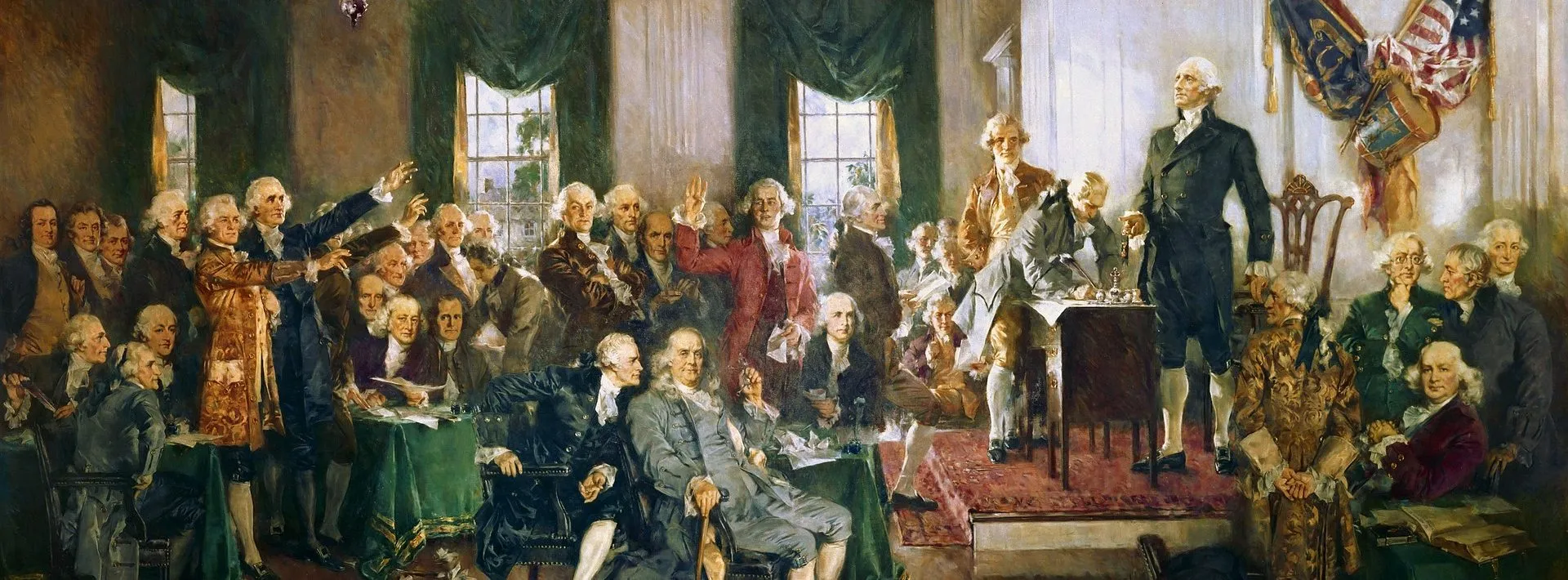Prof. William Wagner was at the U.S. Supreme Court for the President’s nomination of Judge Brett Kavanaugh. Preliminarily, elections matter. Thus, I see the nomination as a comparatively solid selection, with some important concerns. Not my first choice, but way ahead of anyone preferred by those who lost the election, (i.e., the people now protesting the nomination).
The Post-Nomination Constitutional Process
The Supreme Court sits across the street from the the United States Senate. Under Article II of the Constitution, the Senate provides advice and consent before the appointment to the Court occurs. For Judge Kavanaugh, the distance between the Senate and the Court will not be a walk across the street. Some significant questions concerning his constitutional jurisprudence remain unanswered. That is why the Framers provided for an advice and consent process. The process this time will be rigorous, which is appropriate. Watch these pages for an honest analysis of emerging concerns, providing you with actual sources you can use to decide for yourself where you stand on the appointment. Unfortunately, to preserve their political preferences, expect leftists to use the advice and consent process in vicious and misleading ways. We plan to cover that too.
According to those who know him, Judge Kavanaugh possesses the competence and character to serve as a Supreme Court justice. This includes both politically liberal and conservative scholars.
Competence
Of his eleven U.S. Court of Appeals decisions reviewed by the Supreme Court, the Court affirmed every one. After attending Yale Law School, he earned a young lawyer’s highest honor, clerking at the U.S. Supreme Court. There he worked for Justice Kennedy, the man he now hopes to replace. Before his Supreme Court clerkship, Kavanaugh clerked for a highly respected U.S. Court of Appeals jurist, Judge Alex Kozinski. He also held a prestigious fellowship in the Office of the Solicitor General. The Solicitor General serves as the government’s lawyer before the Supreme Court. No one contests his brilliant mind trained in the law, or his supporting academic credentials.
Character
Yes, its true. Kavanaugh served as an altar boy. He also coaches his daughter’s basketball team (they call him Coach K). He works with and cares for the poor in his local community.
Restoring the Constitution as the Rule of Law for the Nation – Questions and Concerns
Some important questions about his constitutional jurisprudence remain unanswered. During the Senate confirmation hearing for his current U.S. Court of Appeals position, Kavanaugh stated:
On the question of Roe v. Wade, if confirmed to the D.C. Circuit, I would follow Roe v. Wade faithfully and fully. That would be binding precedent of the Court. It’s been decided by the Court.
To be sure, Kavanaugh chose his words carefully at that hearing. So carefully that no one knows what he might do should the Senate confirm him as a Supreme Court Justice. Concerningly, at his nomination, he stated the that while he plans to interpret the Constitution based upon what it says, he plans to do so as “informed by precedent.” Roe v Wade is precedent. Wrongly decided precedent in need of reversal, but precedent. A number of the Court’s other opinions fall into this category as well.
A Call to Action
Whether we restore the Constitution as the Rule of Law for our nation depends upon how Judge Kavanaugh views precedent. Does he believe the Court in Roe v Wade acted beyond its Article III authority, thus justifying reversal of a wrongly decided precedent. Or does his jurisprudence tell him to let the decision stand?
The answer to these questions establish whether the nominee will restore the plain meaning of the Constitution as the Rule of Law for the Nation. Someone should, therefore, ask the questions. Under our Constitution, the Senate has now the opportunity to do so.











